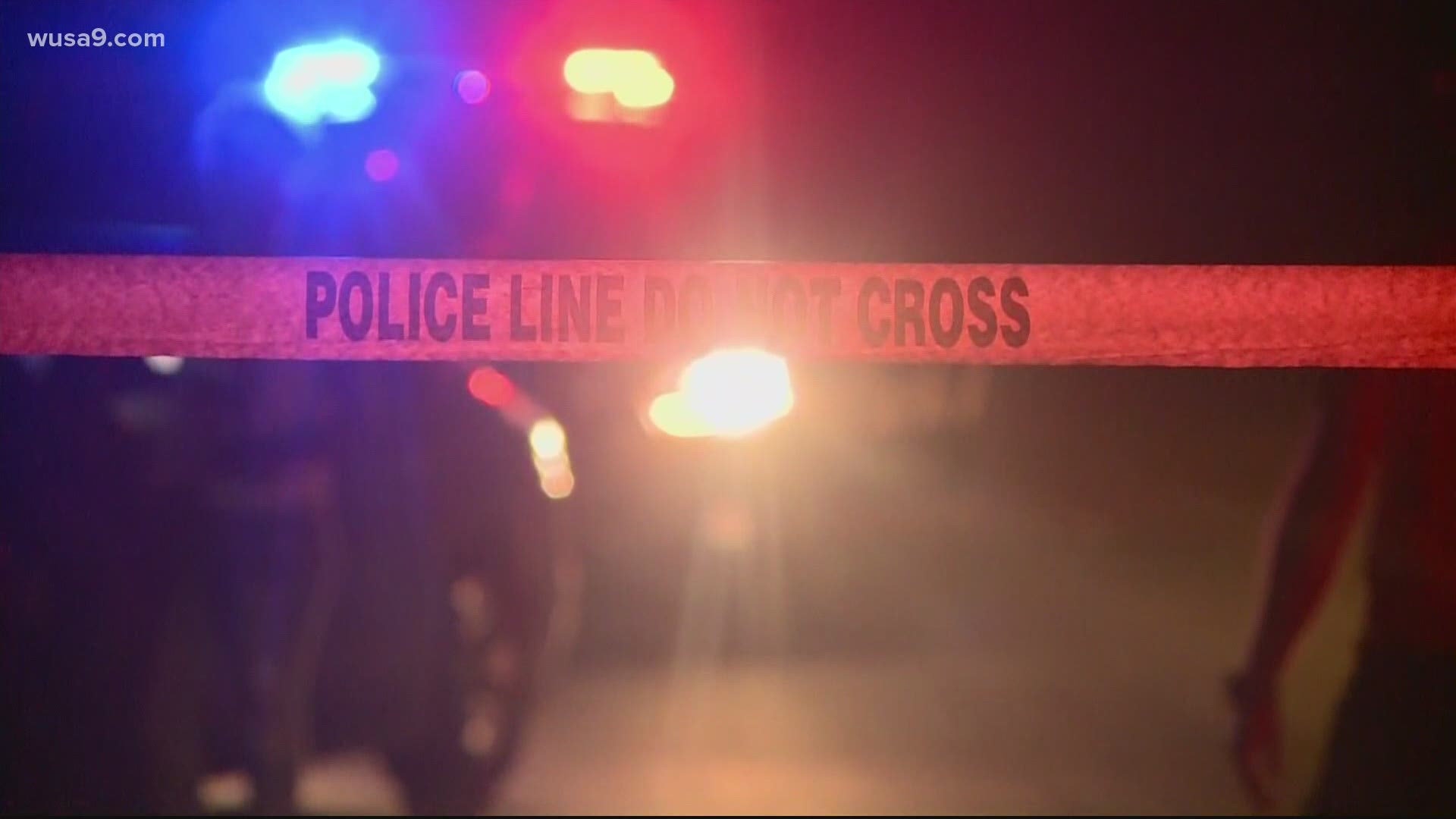MONTGOMERY COUNTY, Md. — As the COVID-19 pandemic continues, Montgomery County leaders said in a Public Safety Committee meeting Thursday that there has been an increase in complaints related to traffic issues throughout the county.
The complaints stemmed from drag racing, loud vehicles, and excessive speeding, according to a county memo.
When pressed during the committee meeting about the number of routine traffic stops made, Montgomery County Police Department Assistant Chief Tom Didone said there has been a decrease. He added there’s a correlation between the lower number of cars on the road and the lower visibility of officers.
“We can direct officers to do so [conduct traffic stops] but what officers do, we can’t tell them they have to conduct enforcement, we can’t give them quotas," Didone said in the meeting. "We can give them the expectations, but no you can’t make them conduct traffic stops."
Didone said officers initially scaled back patrols because of the department’s COVID concerns at the beginning of the pandemic.
“Initially when COVID hit, they were given direction to limit their traffic stops and their exposure to only very serious violations," he said. "Those officers weren’t doing a lot to start with, and they’ve done exactly nothing after that."
According to a county memo, there were 30 fatal accidents in 2019. As of Oct. 15, there were 28 fatal accidents, so 2020 is on pace to exceed last year’s death rate.
Montgomery County Councilmember Tom Hucker, who is on the public safety committee, said what councilmembers learned Thursday was concerning.
“He [Didone] admitted that officers didn't want to do their job and enforce traffic laws and then underscored by direction from, I guess the police leadership, they were told that it's okay if they don't enforce traffic laws because of a concern that they might expose themselves to COVID," Hucker said. "Obviously I want to keep our police as safe as anybody does, but if that's the case they should wear masks and my understanding is they often don't wear masks and they're not required to."
Hucker said despite officers not pulling people over because of the COVID-19 risk, they are still getting the same differential pay that frontline workers receive for putting themselves in dangerous situations.
“There's all kinds of people in the private sector working in hospitals, and grocery stores, and certainly our bus drivers as well that are on the front lines exposing themselves every day,” Hucker said. “And it was very odd to find out that police officers were just allowed to look the other way and not pull over a speeder or not pull over a distracted or an aggressive driver because they are allowed to just not do that because they fear exposure to COVID.”
Didone also said there's been a difference in expectations of enforcing traffic laws while handling other duties lately. He said some police districts have focused more on traffic violations, while others focus more on crime.
“The traffic officers were more engaging in the fourth district at the direction of the commander and more responsive, the third district not as much,” Didone said. “The difference between the third district and the fourth district is the fact that the officers chose to engage in the fourth district but chose not to engage in the third district. So the idea is the officers over the years have become quite comfortable in managing their own time and resources, so yes there is a morale issue that they do not want to be held accountable and they do not want to be given a central direction contrary to what they want to do.”
Hucker said the difference in focus gives the impression some officers, depending on where you are in the county, will look the other way.
“It sends one signal to burglars that, oh, okay, you're going to get away with it because we're just focused on traffic enforcement in Wheaton," Hucker said. "But here in Silver Spring, don't try to break into a house, but you can speed all you want because we're not really doing traffic enforcement. I think that's absolutely the wrong signal we want to send to people who are thinking about breaking a law.”
Didone also cited the fear of being accused of racially profiling as a contributing factor in the decrease in traffic enforcement.
“It is difficult for us to get our officers to re-engage in traffic," he said. "To be honest with you, the concerns about pretextual stops and concerns of racial profiling in the community has them afraid to engage. The deaths are increasing, the traffic volumes are up there, these problems are existing. We have to do our jobs and it would help from the council if we heard more about Vision Zero and less about racial profiling. We want to move it forward.”
As far as addressing the issues of lower traffic enforcement, Hucker said he would be talking with his colleagues about the best steps forward.
“There's a real danger to our constituents out there, both drivers and cyclists and pedestrians, if our traffic laws aren't being enforced," Hucker said. "And we were just told by the Assistant Chief today that they're really not."

